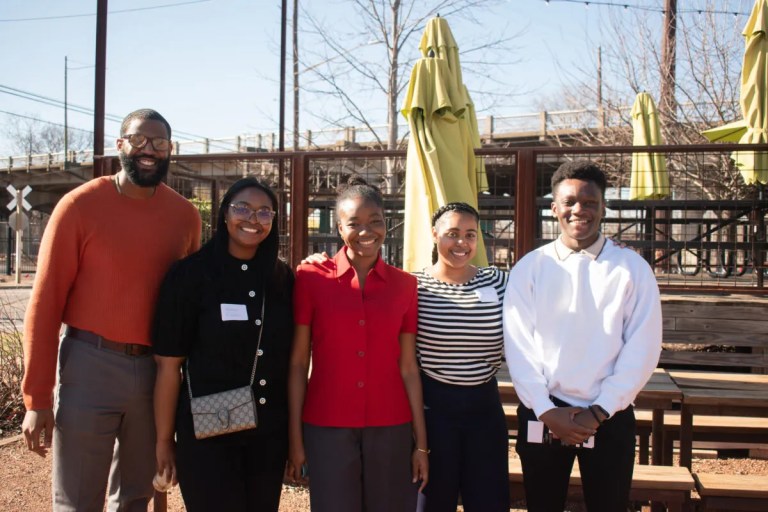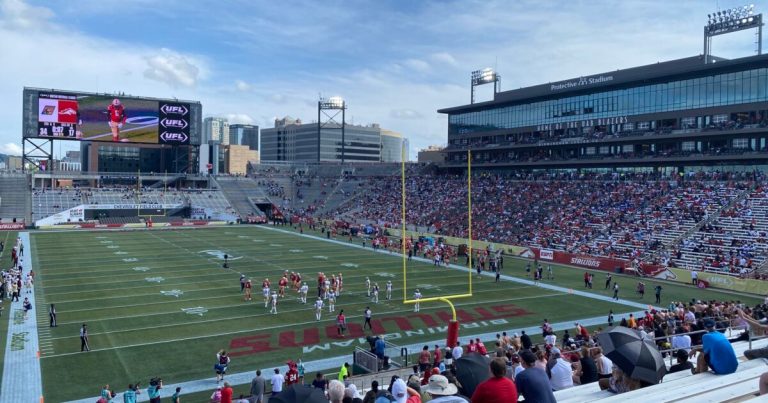Reviewed by: Sharron Swain
How Auburn’s football field doubles as an amazing scientific research center
Reading time: 4 minutes
Sponsored

Fall is here, and Auburn football is off to a strong start. The athletes have been working hard all year to prepare for these few months, but they’re not the only ones who have been getting after it.
Auburn’s field crew consists of some incredible students who keep the field in its spotless condition. Read on to learn more about these students and how they can go on to earn six-figure salaries.
Hands on-work for Crop and Soil Sciences majors

Each year, the field crew at Auburn needs around 12 students to assist them in maintaining the sports facilities. Out of all the majors at Auburn, Crop and Soil Sciences students are top candidates for these positions.
During football season, you can find them painting lines and logos, manicuring the grass, running equipment and maintaining the tarp. Dr. Steven Hague, Head of the Crop, Soil and Environmental Sciences Department, stresses how beneficial these jobs can be for Auburn students.
“It’s really important to have a job that works well in your class schedule. When working with the field crew, students can gain valuable skills while having plenty of time for classes, study sessions and extracurricular activities.”
Dr. Steven Hague, Head of Department, Crop, Soil and Environmental Sciences
Innovative research facilities


If the football field is where the Crop and Soil Sciences majors put their skills to the test, the turf facility is where they acquire them.
Here, you can find research plots, where students identify different types of harmful weeds and study the effects of applying various levels of pesticides and fertilizers.
Students can work part-time at the facility, and some work full-time during the summer. Dr. David Han, Associate Professor and Extension Specialist, explains how valuable these jobs can be to Crop and Soil Sciences students.
“Our superintendent of the turf facility wants the students to get exposed to as many different jobs as possible so that they’ll have well-rounded experience and feel prepared to enter the workforce.”
Dr. David Han, Associate Professor and Extension Specialist
If you want to attend a top research institution, check out Auburn’s College of Agriculture and how you can save money through Path to the Plains.
Holistic approach to agriculture


However, turfgrass is not the only avenue for students. Incorporating a holistic approach into the curriculum, the College of Agriculture also exposes Crop and Soil Sciences students to the traditional food agriculture industry and agricultural research.
In fact, Crop and Soil Sciences students can choose one of four different specialities to focus on within their major:
“Many of our Crop and Soil Science students major in turfgrass, but turf is not the only crop we study. Our bread and butter at Auburn is research, and although we train our students to be turf specialists, we also want them to have a good understanding of all aspects of agronomy.”
Dr. David Han, Associate Professor and Extension Specialist
Incredible job opportunities

Auburn’s Crop and Soil Sciences students who specialize in Turfgrass go on to become golf course superintendents, pro team sports field managers, college field maintenance staff and more.
One Auburn graduate, Richard Wilt, even managed a sod farm in South Georgia that grew grasses for the 2020 Super Bowl in Miami.
“There are 10 jobs our there for every one Turfgrass major. The notion that you can’t make any money with an agriculture degree is entirely false. Many of our graduates are getting offered six-figure salaries.”
Dr. Steven Hague, Head of Department, Crop, Soil and Environmental Sciences
Success at Auburn
If you don’t want to sit behind a desk all day, the turfgrass industry is a great option. There is no shortage of jobs, and you can work anywhere in the U.S. or even internationally.
“When you get a degree from Auburn, you’re setting yourself up for success. By attending the College of Agriculture, you enter into a strong network of people not just in Alabama but in the U.S. and internationally.”
Dr. Steven Hague, Head of Department, Crop, Soil and Environmental Sciences
Job placement is incredible in the turfgass industry—get the skills you need at Auburn’s College of Agriculture and save money through Path to the Plains.
Sponsored by:




